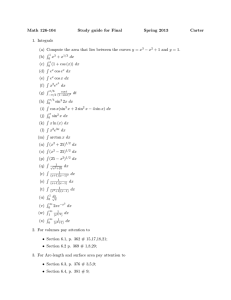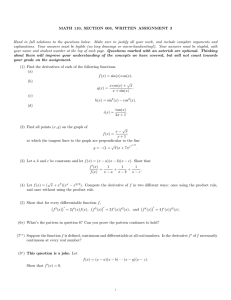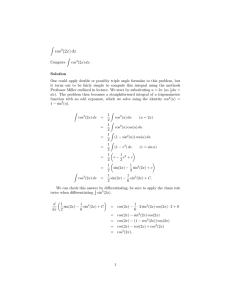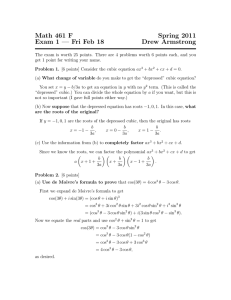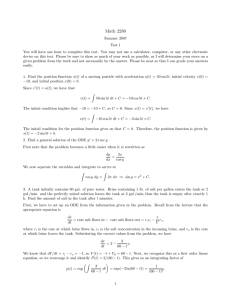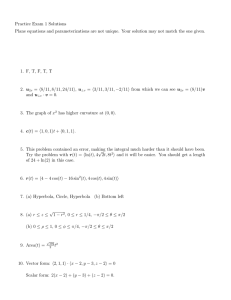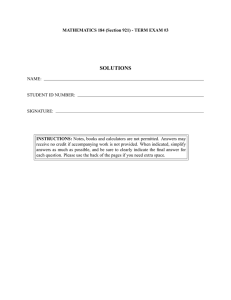Math 126-104 Study guide for test 2 Spring 2013 Carter
advertisement
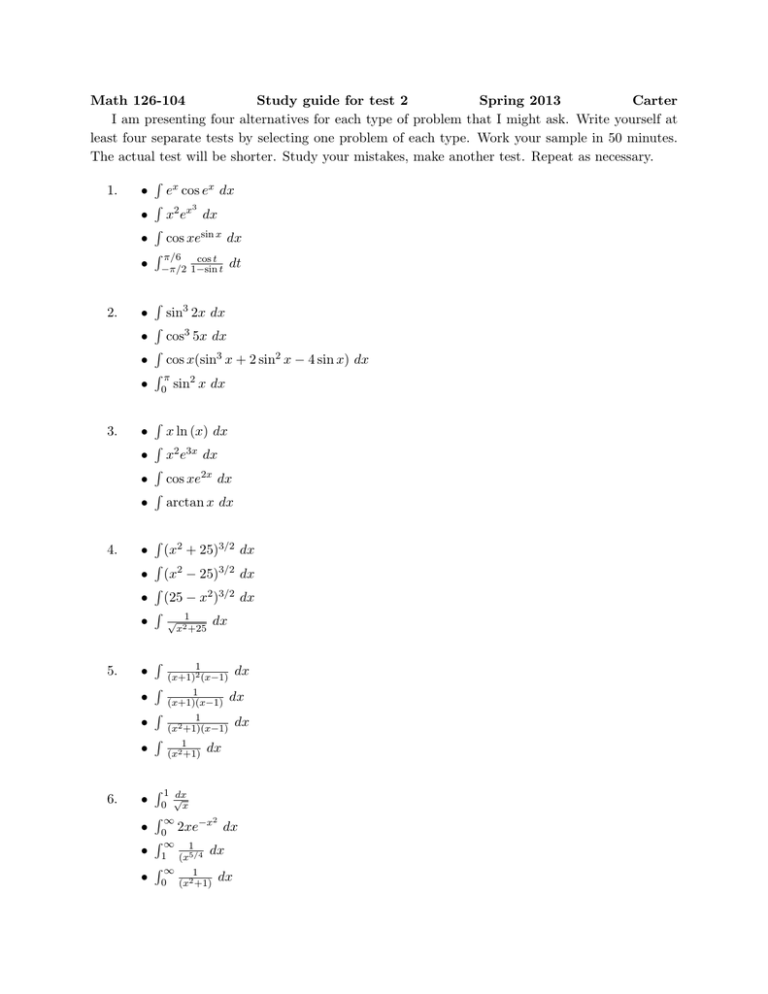
Math 126-104 Study guide for test 2 Spring 2013 Carter I am presenting four alternatives for each type of problem that I might ask. Write yourself at least four separate tests by selecting one problem of each type. Work your sample in 50 minutes. The actual test will be shorter. Study your mistakes, make another test. Repeat as necessary. 1. 2. 3. 4. 5. 6. • R ex cos ex dx • R x2 ex dx • R cos xesin x dx • R π/6 • R sin3 2x dx • R cos3 5x dx • R cos x(sin3 x + 2 sin2 x − 4 sin x) dx • Rπ • R x ln (x) dx • R x2 e3x dx • R cos xe2x dx • R arctan x dx • R (x2 + 25)3/2 dx • R (x2 − 25)3/2 dx • R (25 − x2 )3/2 dx • R √ 1 x2 +25 • R 1 (x+1)2 (x−1) • R 1 (x+1)(x−1) • R 1 (x2 +1)(x−1) • R 1 (x2 +1) • R1 • • • 3 cos t −π/2 1−sin t 0 dt sin2 x dx dx dx dx dx dx dx √ x R∞ −x2 dx 0 2xe R∞ 1 1 (x5/4 dx R∞ 1 0 (x2 +1) dx 0 7. For each of the recursively defined sequences, write out the first 5 terms. When possible, give a closed formula for the general term, and determine if the sequence converges. • a1 = 1, an+1 = an + (1/2n ) . • a1 = 1, an+1 = an /(n + 1). • a1 = 2, an+1 = (−1)n+1 an /2. • a1 = 1, an+1 = 1/(1 + an ). 8. Determine the limits of each sequence: • an = 2 + (0.1)n • an = • an = • an = n+3 n2 +5n+6 n − 31 sin n n 9. For each of the series determine a formula for the nth partial sum: • 1 1 1 + + ··· + + ··· 2·3 3·4 (n + 1) · (n + 2) • 1+ • • 1 1 1 + + ··· + n + ··· 5 25 5 9 9 9 + + ··· + n + ··· 10 100 10 2 3 4 2 2 2 − + − + − + ··· 3 3 3 10. Use any test that you like to determine if the given series converges. For my own convenience, I will list more than 4 problems here. • • ∞ X ln n √ n n=2 ∞ X n=1 1 n100,001/100,000 • X • n = 1∞ ∞ X n=1 n2 n +1 1 3n − 1 • √ ∞ X n 2 n +3 n=1 • ∞ X 1 n! n=1 • ∞ X 3 n 1+ n n=1 • X n! (2n)! n=1
